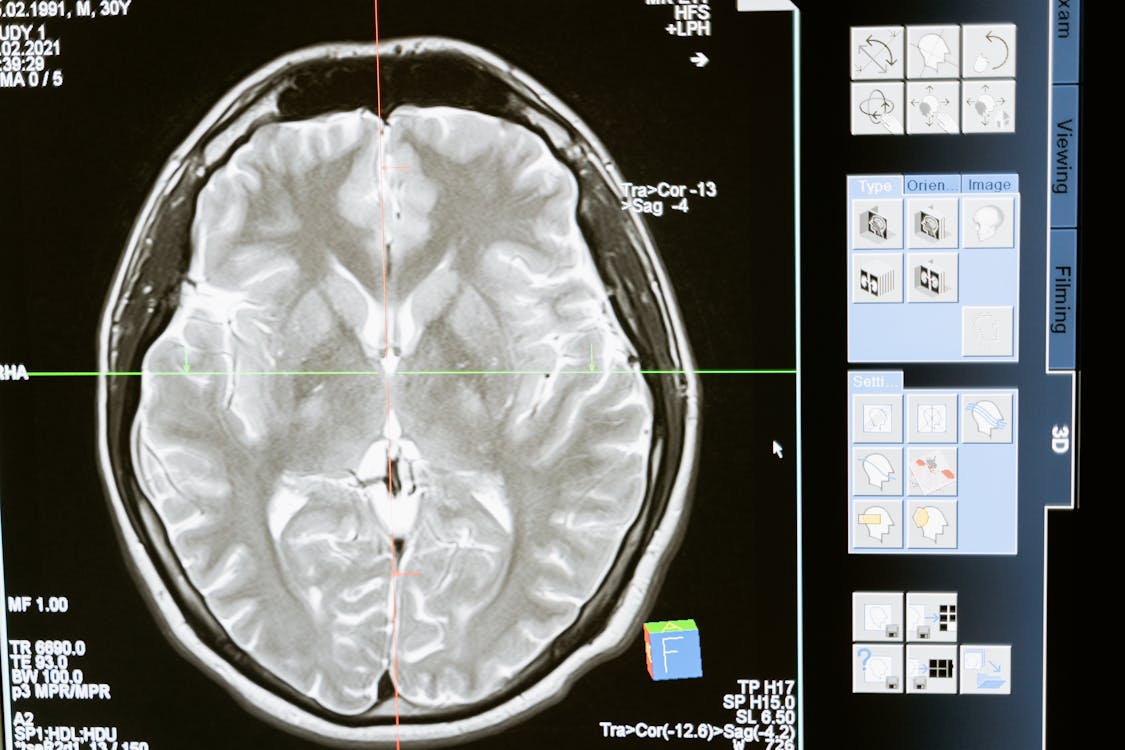
They say the eyes are the windows to the soul, but what if they also offer a glimpse into your intelligence? Beyond revealing emotions or catching subtle signs of fatigue, your eyes might hold a fascinating secret about how your brain works.
Recent research has uncovered a surprising link: the size of your pupils—the dark centers of your eyes—may be connected to your intelligence. It’s not just a poetic metaphor; science suggests that larger baseline pupil sizes are associated with higher cognitive abilities, such as fluid intelligence and attention control.
This intriguing connection between pupil size and intelligence opens a window into the complexity of the human mind, offering new ways to understand our cognitive abilities and what shapes them.
The Fascinating Science of Pupil Size and Intelligence
 Image source: Shutterstock
Image source: Shutterstock
Your pupils may do more than adjust to light—they could offer clues about how you think and process the world. In recent studies, researchers used advanced eye-tracking technology to measure pupil size while participants were at rest, staring at a blank screen. The findings were striking: individuals with larger baseline pupil sizes tended to score higher on tests measuring fluid intelligence, attention control, and working memory.
But what exactly do these terms mean? Fluid intelligence is your ability to solve problems and adapt to new situations without relying on past knowledge. It’s like figuring out the rules of a new game by observing how it’s played. Attention control, on the other hand, refers to your ability to stay focused even when distractions try to pull you away. These abilities are crucial for everything from learning new skills to making sound decisions.
What makes this link even more intriguing is its visibility. According to the researchers, the correlation between pupil size and intelligence is so pronounced that it can sometimes be spotted with the naked eye. While tools like eye-trackers provide precision, your pupils’ resting size might already hint at how your brain handles complex tasks.
How a Tiny Brain Region Shapes Cognitive Ability
Ever wondered how your brain juggles everything from keeping you focused to solving problems on the fly? That’s where the locus coeruleus comes in. This tiny but mighty part of the brain is like your mind’s control tower, keeping things running smoothly when life throws challenges your way.
Here’s the cool part: this brain region is tied to your pupil size. Think of it as a behind-the-scenes operator, regulating norepinephrine—a neurotransmitter that helps you stay alert, learn new things, and remember important details. When the locus coeruleus is firing on all cylinders, your brain works like a well-oiled machine, tackling problems and distractions with ease.
And those larger pupils we’ve been talking about? They might just be a subtle indicator that your locus coeruleus is in top form. It’s like a built-in signal that your brain’s systems are well-tuned to handle complex tasks. Pretty amazing, right?
Of course, while this connection is fascinating, it doesn’t mean larger pupils automatically make you a genius. The science shows a correlation, not a rule. But it does give us another clue about how our bodies and minds are intricately linked—something worth marveling at every time you catch your reflection in the mirror.
 Image source: Pexels
Image source: Pexels
Criticisms and Challenges in the Research
Not everyone in the scientific community is convinced about the link between pupil size and intelligence. Some researchers argue that the connection might not be as clear-cut as it seems. The main issue? Replicating these findings in other studies hasn’t been straightforward.
One major hurdle is methodology. Small differences in how studies are conducted—like the brightness of the room or the settings on a monitor—can have a big impact on pupil size measurements. For example, overly bright conditions can constrict pupils to their physiological minimum, reducing the variability needed to detect meaningful correlations.
Another concern is the distinction between correlation and causation. While larger pupils have been associated with higher cognitive abilities like fluid intelligence, this doesn’t necessarily mean that pupil size causes intelligence—or vice versa. It could simply be a reflection of other underlying factors, such as the efficiency of brain networks.
That said, the research still holds promise. With improved experimental conditions and larger study samples, scientists are better equipped to address these challenges and refine our understanding of the intriguing pupil-intelligence link.
Why This Discovery Matters
The connection between pupil size and intelligence goes beyond mere curiosity—it could pave the way for groundbreaking applications in medicine and neuroscience. By studying pupil size, researchers may one day develop non-invasive tools to monitor brain health and detect early signs of conditions like Alzheimer’s or ADHD.
This research also reframes how we think about intelligence. It’s not just about what we know or achieve but also how our bodies and brains work in harmony. Pupil size offers a small yet fascinating glimpse into the complex systems that shape our cognitive abilities.
Ultimately, this discovery challenges us to explore the untapped potential within ourselves. What else could our physical traits reveal about how we think and grow? The link between pupil size and intelligence is a reminder that there’s always more to learn—if we’re willing to look closely.
Turning Insights Into Action
 Image source: Shutterstock
Image source: Shutterstock
The connection between pupil size and intelligence might sound fascinating, but here’s what truly matters: the way you choose to care for your mind. Intelligence isn’t something you’re stuck with—it’s something you grow through curiosity, effort, and intention.
So, ask yourself, how are you challenging your mind today? Whether it’s learning a new skill, staying present in the moment, or simply feeding your brain with positivity, the actions you take now shape the person you’re becoming. Growth isn’t about what you were born with; it’s about what you choose to nurture.
At the end of the day, intelligence isn’t just a reflection of your brain—it’s a reflection of your commitment to becoming your best self. So, take this as a reminder: no matter where you start, the power to evolve is always in your hands.
Eyes Open to New Possibilities
The connection between pupil size and intelligence offers an exciting glimpse into the intricate interplay between the brain and the body. While traditional measures of intellect focus on test scores and logical reasoning, this emerging research highlights the potential of physiological indicators to reveal more about cognitive abilities.
By understanding how factors like the locus coeruleus influence both pupil size and cognitive performance, we move closer to uncovering the nuanced workings of the human mind. Yet, as the scientists themselves emphasize, correlation does not imply causation. This means more research is essential to validate these findings and explore their broader implications.
This intriguing link serves as a reminder of the complexity of intelligence and the need to approach its study with both curiosity and skepticism. Whether used to inspire educational strategies, inform professional assessments, or simply fuel scientific curiosity, the connection between pupil size and intelligence opens up a whole new way of seeing—and understanding—the human mind.
Featured image source: Shutterstock
Loading...






